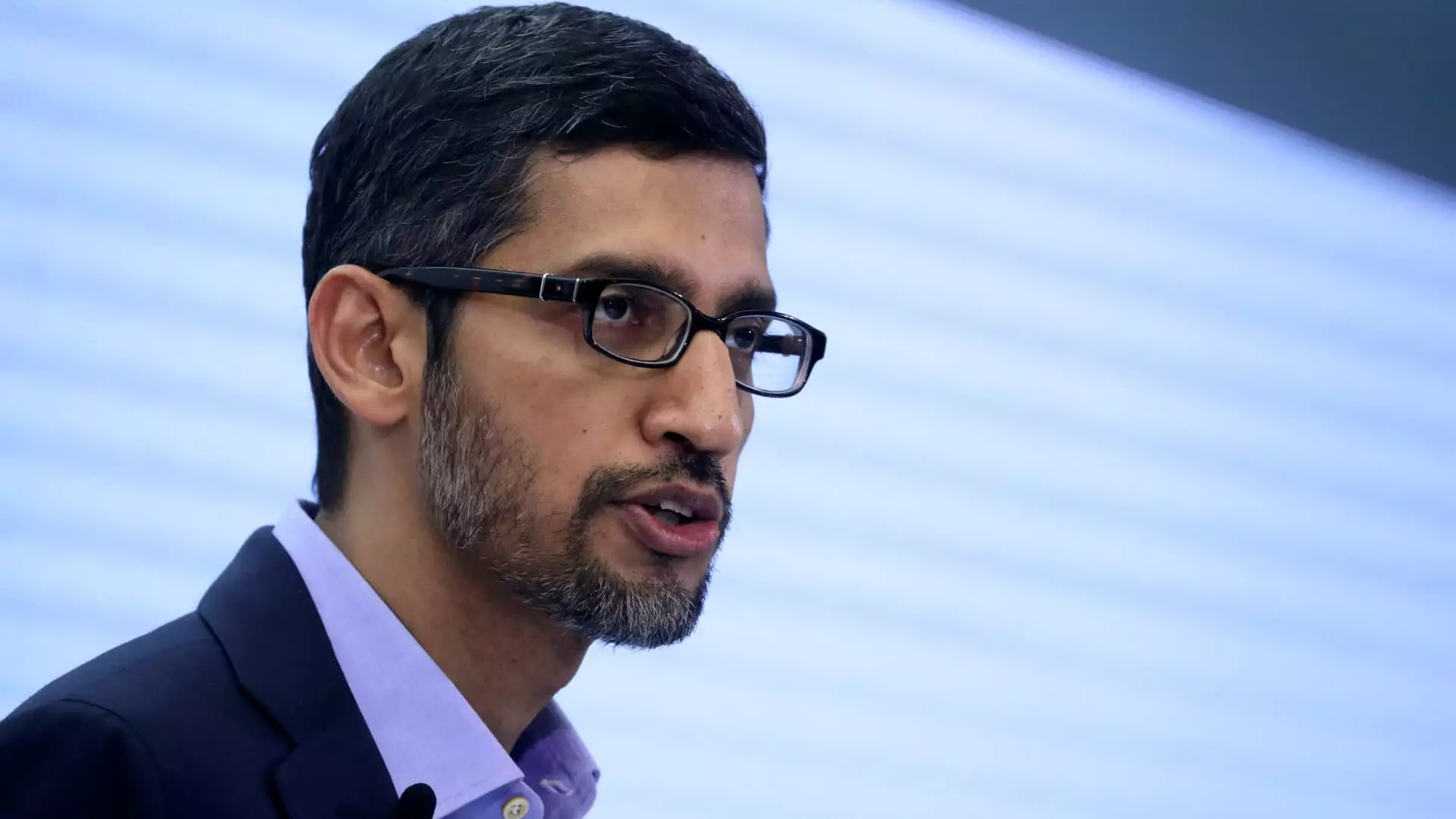Alphabet, Google’s parent company, is set to release its first-quarter earnings after the bell on Thursday. Analysts are expecting earnings per share of $1.51 and revenue of $78.59 billion. Additionally, YouTube advertising revenue is projected to be $7.72 billion and Google Cloud revenue to be $9.35 billion. Traffic acquisition costs are expected to reach $12.74 billion.
It is crucial to note that the market is anticipating a second consecutive quarter of year-over-year revenue growth in the low teens for Alphabet. This signals an improvement from previous quarters but is also reflective of Google’s challenging period in terms of revenue performance.
Generative artificial intelligence has catalyzed a significant shift in consumer behavior, prompting Google to adjust its strategies to align with the evolving landscape. The increasing demand for innovative technology and features has compelled Google to compete with industry giants like OpenAI and Microsoft. In response, Google introduced an AI image generator in February, which experienced backlash due to inaccuracies. The company has acknowledged the need to prioritize AI development to remain relevant in a fast-paced digital environment. Prabhakar Raghavan, a senior vice president at Google, emphasized the importance of rapid AI investments and the necessity to keep pace with emerging trends. He highlighted the challenges posed by organic growth deceleration and the changing dynamics of user interaction with online platforms.
The first quarter of the year has been characterized by both successes and setbacks for Google. Raghavan led a restructuring of the search unit, appointing Liz Reid as the head of search to drive innovation and efficiency. The company rolled out new generative AI features in search and introduced Circle to Search, a tool that streamlines the search process using images or text from screenshots. Despite these advancements, cost-cutting measures, and layoffs persisted throughout the quarter. Google CFO Ruth Porat announced restructuring initiatives to streamline operations and support investments in emerging technologies like AI. CEO Sundar Pichai hinted at potential job cuts in 2024, underscoring Google’s commitment to enhancing its technological capabilities amidst a challenging economic climate.
Google faced internal dissent as employees protested against the company’s cloud contract with the Israeli government, Project Nimbus. This internal discord reflects a broader concern within Google’s workforce regarding ethical considerations and business partnerships. External factors, such as market expectations and competitive pressures, have compelled Google to pivot towards AI-centric strategies to sustain growth and retain market relevance. The shift towards AI-driven solutions underscores Google’s commitment to innovation and adaptation in a rapidly changing digital landscape.
Google’s first-quarter earnings report will provide valuable insights into the company’s performance amid the proliferation of generative AI technologies. The challenges posed by evolving consumer preferences and technological advancements necessitate strategic realignments to ensure sustained growth and competitiveness in the digital domain. As Google navigates the complexities of an AI-driven market, the company is poised to capitalize on emerging opportunities while addressing potential risks and uncertainties.

